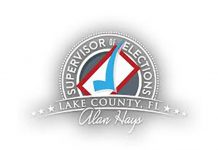Lake County Dodged the Bullet! We had a week of preparedness and an overload of information from the news networks. Now, we can breathe a sigh of relief and, once again, get on with our lives. Our family and friends are safe and, the fear of the unknown is over. It’s back to normalcy.
Shelters closed at noon today, Lake County schools and LSSC will be back in session tomorrow and businesses will be open as usual.
Threat of Hurricanes: Though Lake County was fortunate this time around, hurricanes will always remain a threat to Florida. The next hurricane may be the BIG one so never become complacent, never be caught unprepared and always help your neighbors, friends and pets. Hold on to your supplies until hurricane season is over. We are all in this together.
How Can We Help? Let us be mindful of our neighbors in the Bahamas and those that were impacted by Hurricane Dorian.
There are scammers who will profit from disaster. Before sending a contribution, do some research. Be sure you give to a legitimate organization. Be wary of brand-new charities; even if legitimate, they may not have the capabilities or resources to aid the victims. Avoid unsolicited phone and email requests. Do not send cash – Use a credit card or personal check so you can track your donation.
Advice from the Florida Department of Health in Lake County:
Residents and others working to clean up debris left by Hurricane Dorian could be at risk of sustaining injuries, and the Florida Department of Health in Lake County is urging residents to practice caution when cleaning in and around their homes.
Every person involved in clean up should make sure they have an up to date tetanus vaccination and avoid heat stress when working outside or in non-air-conditioned buildings. There may also be unseen hazards under the water in areas that received storm surge or freshwater flooding. Floodwaters can mask debris, downed power lines, and other hazards.
The department recommends the following tips to help clean up after Hurricane Dorian:
- Wear rubber boots and waterproof gloves during clean-up of sewage and to avoid injury and contamination.
- Be careful about mixing household cleaners and disinfectants. Combining certain types of products can produce toxic fumes and result in injury or death.
- Walls, hard-surfaced floors and many other household surfaces must be cleaned with soap and water and disinfected with a solution of 1 cup of bleach per 5 gallons of water.
- Remove and discard contaminated household materials that cannot be disinfected such as wall-coverings, cloth, and rugs. Wash all linens and clothing in hot water or dry-clean.
- Drywall and insulation that have been soaked should be removed and discarded so disinfection and drying of the internal wall structure can take place.
- Items that cannot be washed or dry-cleaned, such as mattresses and upholstered furniture, may possibly be air-dried in the sun and sprayed thoroughly with a disinfectant. However, these items may need to be discarded.
- It can be difficult to throw away items in a home, particularly those with sentimental value. However, keeping certain items soaked by sewage or floodwaters may be unhealthy. In general, materials that cannot be thoroughly cleaned and dried within 24-48 hours should be discarded
- Fiberboard, fibrous insulation and disposable filters in your heating and air conditioning system should be replaced.
- Chainsaws should only be operated in safe conditions and by people that are experienced in proper use.
WOUND CARE / TETANUS
- If you sustain a wound or deep cut that concerns you as handle debris, seek medical attention. Make sure to ask your doctor if you need a tetanus booster vaccine.
- Due to possible contamination, do not expose wounds to floodwaters.
- Proper wound care is essential for all cuts and lacerations regardless of exposure to floodwaters. Clean wounds with soap and disinfected or bottled water.
- Individuals deployed to work on recovery efforts are encouraged to contact their primary health care provider to make sure they are current on their tetanus vaccine.
HEAT SAFETY
Everyone participating in post-storm clean up should practice heat safety. A person can experience sunstroke, heat cramps, heat exhaustion, and even heat stroke if exposed to high temperatures for an extended period of time. Warning signs of heat exhaustion include heavy sweating, paleness, muscle cramps, tiredness, weakness, dizziness, headache, nausea or vomiting, and fainting.
If heat exhaustion is untreated, it may progress to heatstroke. If symptoms become more severe or last longer than one hour, seek medical attention immediately. If you suspect you may have heat exhaustion, take the following cooling measures:
- Drink cool, nonalcoholic beverages
- Rest in an air-conditioned environment
- Take a cool shower, bath or sponge bath
- Wear lightweight clothing
- Prevent sunburn by wearing sunscreen of 30 SPF.
To avoid becoming dehydrated, drink plenty of fluids, especially water, even if you don’t feel thirsty. Persons who have medical conditions such as kidney and heart disease, who require a fluid restricted diet, or who have problems with fluid retention should consult a physician before increasing their consumption of fluids.
HEAT SAFETY TIPS DURING CLEAN UP
- Dress for the heat. Wear lightweight, light-colored clothing. Light colors will reflect away some of the sun’s energy. It is also a good idea to wear a hat or to use an umbrella.
- Drink water. Carry water or juice with you and drink continuously even if you do not feel thirsty. Avoid alcohol and caffeine, which dehydrate the body.
- Slow down and avoid strenuous activity. If you must do strenuous activity, do it during the coolest part of the day – morning hours between 4 and 7 a.m.
- Stay indoors when possible. If air conditioning is not available, stay on the lowest floor out of the sunshine or find a local cooling center.
- Be a good neighbor. Check-in on elderly residents in your neighborhood and those who do not have air conditioning.
- Don’t forget your pets. Make sure they have access to water, ventilation and shade.
For more information about debris clean up safety, visit https://www.cdc.gov/disasters/cleanup/facts.html






